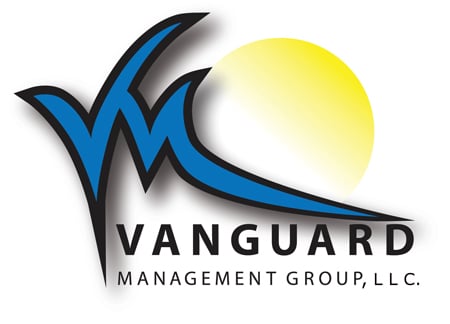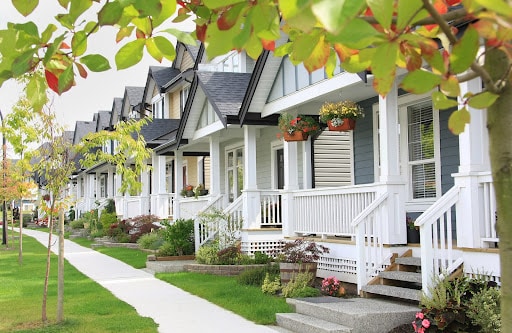

Living in an HOA community has its ups and downs. It’s important to understand what these communities are before you move in. Moreover, it’s crucial to know how living in an HOA community can impact your everyday life as a homeowner.
Are you interested in living in a homeowners association? Before you jump in, here are some facts you need to know about what HOA communities are like and how they impact you.
What is an HOA? The meaning of an HOA or “homeowners association” is an organization in a condominium, planned development, or subdivision that governs the neighborhood residents and properties. Homeowners associations exist for one general purpose: to protect or maintain property values. HOAs fulfill this goal by maintaining common areas and enforcing rules.
Through these activities, homeowners associations are able to keep their property values high. The next time homeowners sell a home, they can offer a higher price because of their neighborhood. This price may be on par with the original price or market value, but it can also be higher because of the HOA.
The benefits that come with HOA living come at a cost. That is the HOA fees the community residents have to pay periodically. These fees are used to pay for services to clean, maintain, and repair common facilities and spaces. Moreover, they’re used to pay staff, fund projects, and replenish the reserves to keep the HOA financially healthy.
Every homeowners association will have a set of Covenants, Conditions, and Restrictions (CC&Rs), bylaws, and rules and regulations. These documents serve as the law of the land that all residents must abide by. The rules have the force of law and can be enforced by the HOA board.
They can be restrictive, as these rules may dictate what a property owner’s home should look like. Moreover, parking, pets, noise, decorations, rentals, and even occupancy limits are often restricted. On the other hand, they also serve a purpose as the rules maintain order and enhance curb appeal.
Each homeowner living in an HOA community agrees to abide by these rules the moment they purchase a home. Naturally, some consequences follow when homeowners break the rules. A neighborhood homeowners association often imposes penalties, temporarily revokes rights and privileges, and may even place liens on properties. This discourages rule-breaking.
For those considering becoming members, they should remember that they have a duty to follow the HOA’s rules. Residents are also responsible for paying the fees they owe the association, including any fines charged to them. Otherwise, it may eventually result in the loss of the home.
Just like any nation with a set of laws, there needs to be a governing group that enforces them. In homeowners associations, these are the HOA’s board of directors. The board is composed of volunteer community residents who have been elected by the homeowners. They collect dues, watch for violations, and keep homeowners in line.
Furthermore, they are responsible for maintaining the community by contracting with maintenance vendors. In fact, they have a fiduciary responsibility to the homeowners association and must act in its best interest. They cannot make decisions for selfish reasons or have any bias toward homeowners.
The HOA board of directors might run the show, but this doesn’t mean the homeowners don’t have any power. Homeowners have many rights, including the right to attend meetings, file complaints, inspect the HOA’s finances, and run for board positions. The residents elect the board, so they have the power to create the community they want through their vote.
In addition, homeowners can participate and become part of committees to make an impact. Some associations also allow homeowners to remove problem board members depending on state law and the governing documents. Hence, homeowners do have the power to make changes in the community.

Homeowners associations come with many perks. The most notable one is accessing community common areas and amenities. Some common examples include parks, pools, gyms, and clubhouses. They also include common spaces like stairs, walkways, roads, elevators, or lobbies.
Homeowners often have equal access to these amenities. They can enjoy their stay and use these privileges while living in the HOA community. The residents pay monthly dues to maintain these facilities, so it’s best to take advantage of them.
The HOA board and HOA management companies aren’t the only ones with maintenance responsibilities. Homeowners also have obligations when it comes to maintenance. That’s because many associations define what homeowners are responsible for. For instance, the HOA may look after common area landscaping while homeowners must care for their lawns.
Furthermore, because HOAs impose architectural and aesthetic guidelines, homeowners may need to maintain their properties more often than expected. They may not be allowed to have chipping paint on their home’s exterior walls. Moreover, some HOAs prohibit damaged roof shingles, unkempt lawns, or dirty driveways. Residents must abide by these rules.
Part of HOA management involves managing the community’s finances. The board must draft a budget yearly to cover all the projected costs. This budget includes allotment for reserve funds that the HOA can use in emergencies. These may not seem relevant to new homeowners, but they play an important role.
The HOA budget and its target reserves determine the HOA fees and special assessments. That’s why homeowners should make it a point to attend annual budget meetings to examine how the HOA intends to use its funds.
Community associations host activities and events like neighborhood block parties, holiday treasure hunts, and pet parades. Homeowners associations use these events to get neighbors to interact and foster a sense of community. Potential residents should expect to socialize with the rest of the neighborhood if they move into an HOA.
Becoming part of an HOA community has both advantages and disadvantages. It certainly isn’t for everyone, as an HOA’s fees and rules might be too burdensome. Nonetheless, homeowners associations serve a purpose and protect the community’s property values.
Are you part of a community association with trouble managing the HOA? We recommend hiring an HOA management company like Vanguard Management Group. Call us today at 813-930-8036 or contact us online to request a proposal!
